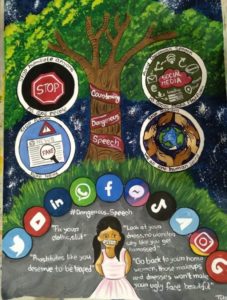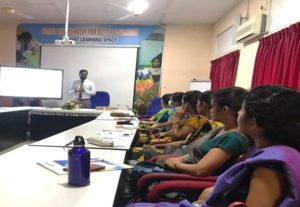Case Study
Human “Books” Build Empathy in Bangladesh
The Human Library Bangladesh promotes intimate conversations with diverse subjects as a key to unlock empathy and counter discrimination.
Surface impressions can be misleading. But all too often, we fall into the trap of making snap judgement calls on people based on our preconceptions and prejudices. At the Human Library Bangladesh, the idea is to avoid judging books by their covers by connecting diverse individuals with different faiths, values and cultures.
Inspired by a concept first piloted in Copenhagen in Denmark and since adopted around the world, the Dhaka initiative — founded in 2017 by a group of university friends — eschews the formalities of a traditional library. Instead of hardback volumes and studious silence, it encourages lively discourse with human subjects: rather like its name suggests.
How it works is simple. People can check out a list of human ‘books’, choose the one that interests them and engage in dialogue. Every person — no matter their creed or colour — has a tale to tell. Without awareness of these stories, there is no way to understand them or the kind of lives they lead.

A “book” telling his story at a Human Library event. The book narrated the struggles of his own life, of how his talent was overshadowed by his weak results in standardized tests. In a culture that values status, test scores matter more than what you have actually learned. Creative ideas and career paths are often hindered by social pressures and the fear of making a mistake. Yet, his failures made him original.(Photo: Human Library Bangladesh)
“By creating this platform of storytelling, the Human Library has fostered a culture of listening around it,” says Rafsanul Hoque, General Secretary and a co-founder of the Human Library Bangladesh. “It has also promoted the fact that empathy can be worked on and developed.”
Discrimination is an unfortunate part of life in Bangladesh. Divisive issues in the South Asian nation range from gender inequality and religious hate to class-based prejudice and other intolerance. Given such context, there’s no mistaking the value of a forum that fosters empathy over divisiveness and exclusion.
Categories on a typical book list at the Human Library are as varied as you might expect. Past events have featured divorcees, drug addicts, mentally or physically disabled individuals, survivors of sexual assault and victims of religious discrimination, among others. The library encourages dialogue as a means for readers to go beyond boundaries of race, gender, age, religion or social status.

The theme of the Human Library — “don't judge a book by its cover” — printed on a leaflet. A placard displays the theme of a book. The human books are given titles instead of their names or information. (Photo: Human Library Bangladesh)
The ongoing global pandemic has, of course, presented the initiative with complex challenges. Lockdowns, social distancing and general anxiety about the spread of the virus has ruled out physical events. A robust social media strategy has helped the Human Library Bangladesh assert its presence and grow its community. It has done so by delivering its stories in creative and engaging new ways.
“We knew that social media was a great way to reach people and show who we are,” says Hoque. “But only with the pandemic have we been fully able to utilize the potential of social media. It has become the only way to reach our audience.”
Recent program highlights include “Know Your Heroes”, a project that profiled the diversity of frontline personnel and others working on behalf of communities during the pandemic. The global health crisis has exacted a grim mental toll and often heightened inequality and division. The project, therefore, was designed to inspire positivity and reduce conflict.

Know Your Heroes - Lamia Mohsin. (Photo: The Human Library Bangladesh)
Subjects included Rani Chowdhury, a trans woman working to support the trans community in Bangladesh during the pandemic. Also featured was the captain of the nation’s wheelchair cricket team. He actively participated in relief activities in the darkest days of 2020.
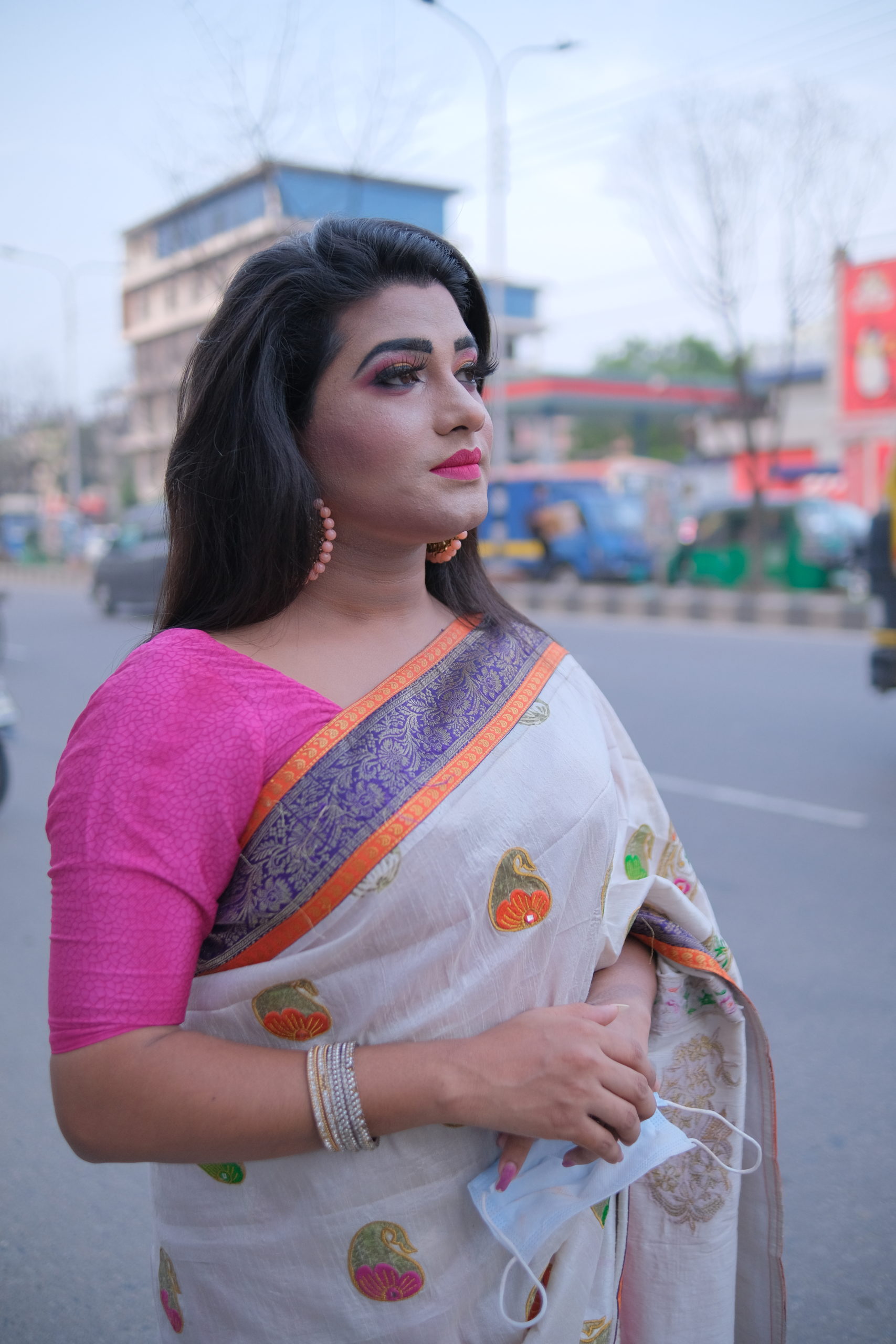
Dancer, model and transgender activist Rani Chowdhury, was part of the “Know Your Heroes” campaign. (Photo: The Human Library Bangladesh)
With global vaccination efforts stepping up, light is appearing at the end of the long dark tunnel. At the Human Library Bangladesh, thoughts are turning towards the post-pandemic era. The initiative has — according to Hoque — already helped combat prejudice and foster value shifts among communities in Dhaka.
Now its goal is to keep evolving. Its founders are actively searching for new subjects to engage with readers. The return of physical events and use of a sophisticated social media strategy, meanwhile, will help grow the initiative’s profile and expand its online audience.

The Human Library team on the inaugural session in 2017. (Photo: The Human Library Bangladesh)
“The future looks interesting and very promising,” concludes Hoque. “We look forward to forging an even larger community. We want to attract people from outside Dhaka. The aim is to expand. But we need to maintain a focus on the quality and integrity of the books and events.”
By utilizing a range of tools at its disposal, the Human Library Bangladesh believes that curious readers from all over Bangladesh will engage with its compelling selection of diverse books.
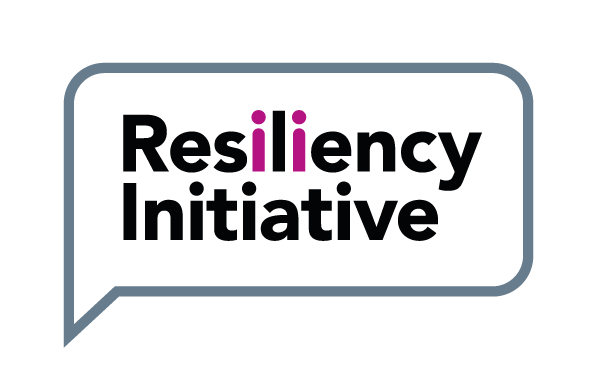


 Back
Back